Speakers
Description
Background: The rapid spread of smart technology, artificial intelligence, robotics, and algorithms (STARA) is leading to the replacement of service jobs with these technological advancements. Although AI awareness may have an impact on employee outcomes, few studies have looked at the results of its involvement with mental health. To address this gap, this study investigated the influence of AI awareness on burnout syndrome. Healthcare organizations are more advanced than ever because of new emerging technologies, especially artificial intelligence (AI), which is associated with easier and more effective patient care. Currently, a common issue that many healthcare professionals are facing is burnout. Burnout is an occupational problem described as a state of emotional and physical exhaustion associated with a job, a feeling of reduced sense of accomplishment, a loss of interest in job roles and responsibilities, and even a lost sense of purpose or identity. Burnout is epidemic in the healthcare industry and affects all healthcare workers, which also affects the quality of patient care, physician health, and the healthcare system.
Aim: Address the association between the use of AI and developing burnout among healthcare workers in relation to psychosocial risk factors.
Recent findings: The study's findings and the practical consequences they suggest can be used as a foundation for a discussion about long-term hospital digitalization initiatives such as AI and its effects on burnout. Research indicates that the use of AI can be linked to distinct psychosocial demands and burnout responses. However, because epidemiological research on this type is lacking, it is still unknown if it contributes to mental problems such as burnout. However, a growing body of research indicates that AI may improve overall performance if it maximizes workplace structure, permits more flexibility, and boosts employee authority and autonomy.
Conclusion: Jobs in healthcare are extremely demanding and stressful. The goal of healthcare practitioners is to provide their patients with high-quality care. The application of newly developed technology in healthcare is critical. However, a crucial first step in supporting health leaders to establish guidelines is identifying AI-specific features related to burnout and understanding usage trends among HCWs. While burnout is one of the possible workplace barriers that AI cannot eliminate, it may reduce its impacts, reduce the physical and mental strain on employees, and enhance patient safety and care quality. It is important to conduct more research in this area in the future so that organizations, government officials, and workers can get ready for any changes that may occur.
Key words: burnout syndrome, artificial intelligence, technology, STARA, psychosocial risk.

